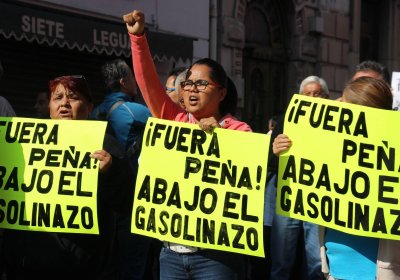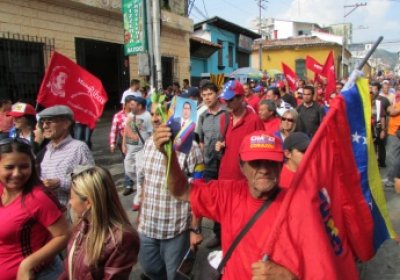New Year’s Day is usually a moment of peace in the chaos of Mexico City — but not this year. For Mexicans, 2017 began with nationwide protests against the government’s plans to deregulate petrol prices, a move opponents say will hurt everyone from the poor to middle class.
Since January 1, protests have only continued to spread, with almost daily demonstrations in nearly every large city. Major highways have also been blockaded by furious transport workers, who say they can’t keep up with rising prices at the bowser.




 Supporters of Correa and the pro-poor 'Citizens Revolution' flood Quito on June 15.
Supporters of Correa and the pro-poor 'Citizens Revolution' flood Quito on June 15.



